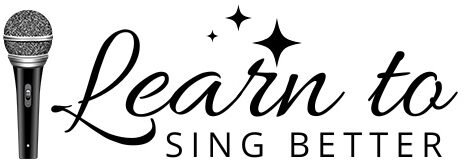So, you’re wondering if signing up for vocal classes will help you sing better. It’s a fair question, especially if you’ve tried singing before and felt like you weren’t getting anywhere.
Many people believe they’re just not naturally gifted singers, but that’s often not the case. Your voice is an instrument, and like any instrument, it can be learned and improved with the proper guidance and practice. We’re going to explore what makes vocal classes effective, what to look out for, and how you can truly develop your singing voice.
Key Takeaways
- There’s no such thing as a ‘bad singer,’ only untrained voices. Anyone can improve their singing with the right approach.
- Good posture and breath control are foundational for better singing, allowing for more substantial support and longer phrases.
- Vocal classes should teach you not just technique, but also how to shape vowels for clarity and develop your unique vocal identity.
- Consistency in practice and patience are vital. Improvement takes time, and regular practice routines are more effective than quick fixes.
- While online resources can be helpful, individual feedback from a qualified instructor is often the most effective way to progress in vocal classes.
Can Vocal Classes Truly Enhance Your Singing?

So, you’re wondering if singing lessons can make you a better singer. It’s a fair question, especially if you’ve felt like your voice isn’t quite hitting the mark. Let’s get honest about it.
The idea that some people are just born ‘bad singers’ is mostly a myth. Often, what feels like a lack of talent is just an untrained voice. You might feel stuck right now, but that doesn’t mean you can’t improve. Think of it like learning any other skill; with the proper guidance and practice, you can develop your singing abilities.
It’s not about magic; it’s about technique and consistent effort. Many people discover that with dedicated instruction, their vocal capabilities transform in ways they never thought possible. It’s a journey, for sure, but one that can lead to some pretty amazing results.
The Myth of the ‘Bad Singer’
Ever been told you’re a ‘bad singer’? Or maybe you just feel that way yourself? It’s a common thought, but honestly, it’s usually not the whole story. Most of the time, what people perceive as a ‘bad singer’ is simply a lack of proper training and confidence.
Your current vocal ability doesn’t have to be your final destination. There’s a tremendous amount of growth potential when you get the right kind of help. It’s about dispelling that limiting belief and realizing that your voice is an instrument that can be learned and refined.
Transforming Untrained Voices
Voice lessons can genuinely revolutionize how you approach singing. It doesn’t matter if you think you’re starting from scratch; proper instruction can help you discover and develop your vocal potential.
This transformation isn’t instant, of course. It involves hard work and dedication, but the outcome can be incredibly rewarding. You’ll learn techniques that allow you to control your voice better, expand your range, and sing with more confidence. It’s about unlocking what’s already there, just waiting to be brought out.
Vocal Lessons: A Path to Improvement
Taking singing lessons is a direct path to improving your singing. It’s not just about hitting the right notes; it’s about understanding how your voice works. You’ll learn about breath control, posture, and how to shape vowels for more precise sound.
These elements work together to create a more pleasing and controlled vocal output. Consistent practice, combined with good instruction, is key to developing these essential vocal skills. It’s a process that builds upon itself, leading to noticeable progress over time.
The Core Components of Effective Vocal Training
When you start thinking about singing lessons, you might picture just hitting the right notes. But there’s a lot more to making a good sound than just the melody. Your body and how you use it are just as important as anything else. It’s like learning to play an instrument; you need to know how it works and how to handle it properly.
Mastering Posture for Better Breath Support
Your stance is a big deal when you sing. Standing up straight, with your feet planted and shoulders relaxed, lets your lungs fill up better. This means you have more air to work with, which helps you hold notes longer and sing with more power.
It’s not just about looking good; it’s about giving your voice the best possible foundation. Think of it as setting up your body to be the best instrument it can be.
The Crucial Role of Air Control
Controlling your breath is like being a wind instrumentalist. You need a steady stream of air to make a clear sound. When you can manage your airflow, you can sing longer phrases without gasping for air and keep your pitch steady.
This also helps prevent straining your voice, which is super essential for long-term singing health. Learning to breathe from your diaphragm, rather than just your chest, is a game-changer for vocal control.
Understanding Vowel Shaping for Clarity
How you shape your mouth when you sing vowels makes a massive difference in how clear you sound. Each vowel has a specific mouth shape, and getting these shapes right helps with pronunciation and makes your singing sound more polished.
It might seem like a small detail, but paying attention to how you form vowels can make your lyrics understandable and add a nice quality to your tone. Practicing these shapes can lead to lasting vocal growth.
Beyond Technique: Developing Your Unique Voice
So, you’ve been working on your posture, your breath control, and maybe even some tricky vowel shapes. That’s fantastic! But singing isn’t just about hitting the right notes or sounding like someone else.
It’s also about finding what makes your voice special and letting that shine through. Think of it as discovering your vocal fingerprint.
Finding Your Vocal Identity
What makes your voice yours? It’s a mix of things: your natural tone, how high or low you can comfortably sing (your range), and those little quirks, like a bit of rasp or a unique vibrato, that give your sound character.
Recognizing these parts of your vocal identity is the first step. It’s not about changing them to fit a mold, but understanding them so you can work with them. Taking voice lessons can help here, not just for technique, but for understanding your own instrument better. It’s about learning to use what you have in the best way possible, and voice coaching can be a big help with that.
Nurturing Growth Through Authentic Expression
Once you start to understand your voice, the next step is letting it be heard authentically. This means being a little vulnerable, sharing your emotions through your singing.
When you sing from a genuine place, people connect with that. It’s more powerful than trying to copy someone else perfectly. Don’t be afraid to let your personality come through in your music. It’s about expressing yourself, not just performing a song.
True artistic expression comes from a place of honesty. When you allow your genuine emotions to guide your vocal delivery, you create a connection with your listeners that imitation simply cannot replicate. This authenticity is what makes your performance memorable and impactful.
Gaining Confidence in Your Uniqueness
It’s easy to doubt yourself, especially when you’re learning. But remember, your voice is one-of-a-kind. No one else can sing exactly like you. Instead of seeing your differences as flaws, start seeing them as strengths. Tell yourself, “My voice is special, and no one else can do what I do.”
Embracing this thought can boost your confidence. When you feel good about your unique sound, you’ll be more willing to experiment and share it with the world.
The Journey of Vocal Skill Development
Becoming a better singer isn’t about waiting for some magical talent to appear; it’s a journey, and like any journey, it requires consistent effort and the right approach.
You’ve probably heard that “hard work beats talent,” and when it comes to singing, that’s true. Even singers you admire started somewhere, likely with a voice that wasn’t perfect. They got better through practice and learning.
The Importance of Vocal Agility
Think of vocal agility as your voice’s ability to move smoothly and quickly between different notes. It’s what makes those fast runs in songs sound effortless. You can build this up, just like you’d train for a sport.
Daily vocal exercises are your best friend here. They strengthen your voice and make it more flexible over time. Proper breathing is also a big part of this; it gives you the control needed for those tricky high notes and helps you sing longer phrases without getting breathless.
Consistency in Practice Routines
To see improvement, you need a solid practice routine. This means more than just singing along to your favorite songs. It involves structured exercises. For instance, vocal warm-ups like humming or lip trills get your voice ready.
Practicing scales and arpeggios helps expand your range and improve your flexibility. Finding songs you enjoy to practice with can also keep things interesting and help you apply what you’re learning. You can find great advice on practicing with familiar songs and improving your overall vocal abilities here.
Patience and Persistence in Learning
This whole process takes time. You won’t become a vocal superstar overnight, and that’s okay. It’s important to be patient with yourself. There will be days when it feels like you’re not making any progress, or when a particular technique just isn’t clicking.
Don’t get discouraged. Keep at it. Every small win, like hitting a note you struggled with before or singing a phrase without straining, is a step forward. Remember why you started singing in the first place, whether it’s for fun or a bigger dream, and let that motivation carry you through the challenging parts. It’s a marathon, not a sprint.
Evaluating Different Avenues for Vocal Learning

So, you’re ready to take your singing to the next level, but where do you even start? It can feel a bit overwhelming with all the options out there. Let’s break down some of the most common ways people go about learning to sing better.
The Benefits of Online Singing Courses
Online singing courses have blown up, and for good reason. They often provide a structured path, taking you from the basics to more advanced techniques in a step-by-step manner.
Unlike just randomly watching videos, a good course builds on what you learned previously, making the whole process feel more cohesive. Plus, they’re usually more affordable than private lessons, which is a big plus for many aspiring singers.
You can find courses that cover everything from breath control to hitting those tricky high notes. Many courses are designed to be cumulative, meaning each lesson builds directly on the last, creating a solid foundation.
Learning from Online Video Lessons
YouTube and similar platforms are treasure troves of singing advice. You can find tutorials on almost any singing-related topic imaginable, from improving pitch accuracy to mastering vocal vibrato.
This is a fantastic starting point, especially if you’re just dipping your toes in. However, the biggest drawback here is the lack of personalized feedback.
While a video might explain a technique, you don’t have a qualified instructor watching you to correct your posture or breathing in real-time. It’s easy to pick up bad habits if you’re not getting that direct guidance.
You might find yourself jumping between different teachers’ advice, which can get confusing. Still, it’s a great way to supplement other forms of learning or to get a quick tip on a specific issue. You can find some really helpful content on improving your voice.
The Value of Individual Feedback
This is where private lessons, whether in-person or online, really shine. Having a coach who can listen to you, observe your technique, and provide immediate, tailored feedback is invaluable.
They can spot issues you might not even be aware of, like subtle tension in your throat or improper breath support. This kind of personalized attention helps you correct mistakes quickly and make much faster progress.
While online courses and videos are great resources, they can’t replace the nuanced guidance you get from a one-on-one session with a skilled vocal coach. It’s about getting that direct connection and having someone guide your specific journey.
The Professional Perspective on Vocal Classes
When you talk to seasoned vocal coaches and professional singers, you’ll hear a consistent theme: technique is the bedrock of good singing. It’s not just about hitting the right notes; it’s about how you get there.
Professionals understand that mastering posture, for instance, isn’t just about looking good on stage. It directly impacts your breath support, giving you the power and control needed for sustained notes and dynamic range. Think of it like an athlete’s stance – it sets the foundation for everything else.
Technique: The Foundation of Singing
Professionals often emphasize that solid vocal technique is non-negotiable. This involves understanding how to use your breath efficiently, how to shape your vowels for clarity, and how to navigate different vocal registers without strain.
It’s about building a reliable instrument. Many singers who seem naturally gifted have spent years honing these technical skills. It’s the difference between a fleeting moment of good sound and consistent, reliable vocal production. You can find great resources online that break down these technical aspects, helping you start your journey.
Style: Adapting to Musical Genres
Once you have a strong technical base, the focus shifts to style. This is where you learn to adapt your voice to different musical genres. Whether it’s the smooth phrasing of jazz, the raw energy of rock, or the intricate melodies of classical music, each genre has its stylistic demands.
A good vocal coach will guide you on how to use vocal embellishments like vibrato, runs, and slides appropriately and how to modify your tone to fit the music. It’s about making the song your own while respecting the genre’s conventions.
Performance: Communicating Emotionally
Ultimately, singing is about communication. Professionals know that technique and style are tools to convey emotion and connect with an audience. This means learning to interpret lyrics, express feelings through your voice, and engage listeners.
Whether you’re singing for a large crowd or recording in a studio, the goal is to deliver a performance that is both technically sound and emotionally compelling. It’s about telling a story with your voice.
Many aspiring singers find that focusing on performance aspects, even in their practice, makes a huge difference in how they sound and feel when they sing.
Why Some Vocal Classes Fall Short

It’s a bummer when you invest time and money into vocal coaching, only to feel like you’re not getting anywhere. Sometimes, the issue isn’t with your potential to sing better, but with the class itself.
You might have heard that anyone can learn to sing, and that’s mostly true, but not every vocal program is created equal. You’ve probably seen those online ads promising instant stardom, and while that’s a stretch, some classes just don’t deliver on the basics.
When Teachers Lack Teaching Ability
This is a big one. You might find a singer who sounds impressive, but that doesn’t automatically make them a good teacher. A great instructor needs more than just a pleasant voice; they need to know how to break down complex techniques into simple steps.
They should be able to identify your specific challenges and provide targeted exercises. If your teacher mostly just sings along or gives vague advice like “just feel the music,” you might not be getting the structured guidance you need. It’s like having a brilliant chef who can’t explain how to cook.
You want someone who can teach you the ‘how-to’ of singing, not just demonstrate it. Finding a qualified instructor is key, and sometimes that means looking beyond just raw talent. You can find great advice and even some instructors through online singing courses.
The Pitfalls of Superficial Gains
Some vocal classes focus too much on quick fixes or surface-level improvements that don’t last. Maybe they teach you a few tricks to sound louder or hit a high note once, but without building a solid foundation in breath support, posture, and vocal cord health, these gains are temporary.
You might feel good for a bit, but you’re not developing your voice sustainably. Think of it like painting over rust; it looks okay for a while, but the underlying problem remains. True progress comes from understanding and strengthening the core mechanics of your voice, not just applying a temporary polish.
Recognizing Useless Vocal Exercises
Not all exercises are created equal, and some can even be counterproductive. If an exercise feels painful, causes strain, or doesn’t seem to connect with any actual singing goal, it’s probably not helping. For example, exercises that encourage excessive tension in the jaw or neck are a red flag.
A good vocal coach will introduce exercises that build strength, flexibility, and control gradually. They should explain why you’re doing a particular exercise and what it’s supposed to achieve. If you’re doing drills that feel pointless or make your throat sore, it’s time to question their effectiveness. You want exercises that build vocal agility and improve your overall singing ability, not just waste your practice time.
Sometimes, singing lessons don’t give you the results you expect. This can happen for many reasons, like not having the right teacher or not practicing enough. If you’re finding your classes aren’t helping you improve your voice, it might be time to explore different approaches. Discover how to find the best vocal training for your needs and start hitting those high notes! Visit our website to learn more.
So, Should You Take Vocal Classes?
Look, nobody is born a perfect singer. You might think you’re stuck with the voice you have, but that’s just not true. Think of your voice like any other muscle – it needs training to get stronger and sound better.
While some folks might have a bit more natural talent, consistent practice and learning the right techniques are what make a difference. Whether you go for in-person lessons, online courses, or even just follow good instructional videos, the key is to put in the work. You’ve got this. Keep practicing, stay patient, and you’ll hear yourself improve.
Frequently Asked Questions
Can someone who thinks they’re a bad singer learn to sing?
Think of your voice like a muscle. Just like any muscle, it can get stronger and better with the right exercises and practice. So, if you feel like you can’t sing well now, that doesn’t mean you can’t learn to sing beautifully. Many people who thought they were ‘bad singers’ have learned to sing much better with lessons.
Can a singing teacher help someone who doesn’t sing well?
Yes! A good singing teacher can show you how to control your breath, hit the right notes, and make your voice sound clearer. They help you practice the right things, which can turn a voice that struggles into one that sounds much better.
Do singing lessons really make you a better singer?
Absolutely. Singing lessons teach you the techniques needed to sing better, like how to breathe properly, stand correctly, and shape your mouth to make clear sounds. They also help you expand the range of your voice and make your voice sound nicer.
Is singing something you’re born with, or can you learn it?
It’s not about being born with a ‘good’ voice; it’s about learning how to use the voice you have. Proper lessons focus on technique, breath control, and practice. These things help you sing more easily and with more confidence, no matter where you start.
Are online singing lessons as good as having a real teacher?
While online videos can help you learn some basic exercises, they often don’t give you personal advice. A real teacher can listen to you, spot what you need to work on, and give you specific tips to improve your unique voice. This one-on-one feedback is super important for making real progress.
How long does it take to get better at singing?
Improving your singing takes time and consistent effort. Think of it like learning an instrument or a sport. You need to practice regularly, be patient with yourself, and keep going even when it feels tough. The more you practice the right way, the better you’ll become.

Ready to sound as good or better than your favorite celebrity? If you want a voice that shocks everyone around you, so you get praises when you walk off stage– use This Training.



